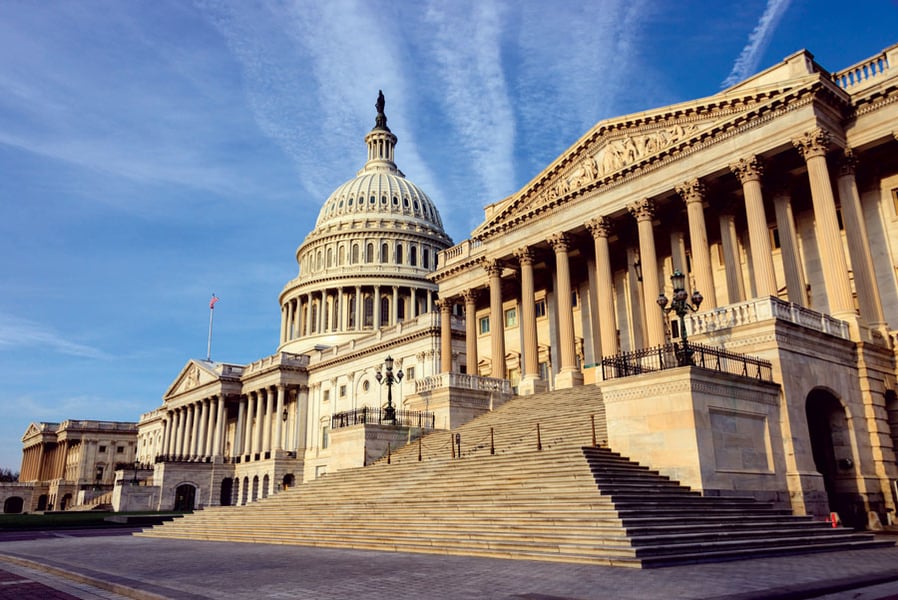

A trade association representing the alternative investment sector said lawmakers were receptive this week to its pitch for the use of such products for retirement saving.
The Institute for Portfolio Alternatives conducted virtual lobbying days on Tuesday and Wednesday in which it met with members of Congress and their aides. One of the group’s goals was to add to the recent momentum from regulators to incorporate a wider range of funds in retirement plans.
In June, the Department of Labor issued a letter telling retirement plan fiduciaries they could include private equity in professionally managed asset allocation funds they offer to plan participants.
The organization said lawmakers it met with looked favorably on the concept of greater use of investments like non-traded real estate investment trusts and non-traded business development companies in 401(k) plans.
“There’s an understanding and appreciation for the inclusion of alternative products in defined-contribution plans,” Anya Coverman, IPA senior vice president and general counsel. told reporters Thursday.
Investor advocates warn that unregistered securities, or private placements, can harm investors and should be kept out of retirement plans.
But Coverman said alternative strategies can “enhance risk-adjusted returns …net of fees.”
Members of IPA told lawmakers that there is a disparity between defined-benefits retirement accounts, which can invest in alternative funds, and defined-contribution plans, which generally avoid doing so.
That difference deprives retirement savers in 401(k) plans of diversification and can diminish retirement savings, said IPA chief executive Tony Chereso.
“In some of the meetings, that message came across loud and clear,” Chereso said. “It was a point that wasn’t necessarily originally understood.”
Securities and Exchange Commission Chairman Jay Clayton has been pushing to open the private securities market to more ordinary investors. Currently, buyers are limited to those who meet wealth, income or expertise thresholds.
The agency is considering a proposal to ease rules on private offerings. That measure has drawn strong criticism from Capitol Hill Democrats as well as state securities regulators. They assert the SEC is moving ahead without understanding the potential investor harm that could come from unregistered securities, or private placements, which are illiquid, difficult to value and lack the transparency of publicly traded investments.
“I continue to be very concerned about the SEC’s attempt to expand private markets -- and the participation of retail investors in those markets --without a commensurate increase in oversight,” Lisa A. Hopkins, West Virginia’s senior deputy securities commissioner and new NASAA president, said in a statement when she took office earlier this month.
Coverman said there’s little chance for legislation this year that would expand the market for private offerings. But she said lawmakers expressed support for the SEC to act.
“We hope that there will be additional removal of unnecessary red tape,” she said.
The IPA lobbying effort this week consisted of 16 online meetings with lawmakers and staff from House and Senate committees with jurisdiction over tax, retirement and financial services policy. Capitol Hill days, a staple for trade associations, have gone virtual this year as a result of social distancing concerns related to the coronavirus pandemic.
Clarification: The Institute for Portfolio Alternatives was advocating for greater use of publicly registered, non-traded real estate investment trusts and business development companies in retirement plans during its Capitol Hill lobbying days. This story has been revised to reflect that point.

Surveys show continued misconceptions and pessimism about the program, as well as bipartisan support for reforms to sustain it into the future.

With doors being opened through new legislation and executive orders, guiding clients with their best interests in mind has never been more critical.

Meanwhile, Stephens lures a JPMorgan advisor in Louisiana, while Wells Fargo adds two wirehouse veterans from RBC.

Large institutions are airing concerns that everyday investors will cut into their fee-bargaining power and stakeholder status, among other worries.

Fights over compensation are a common area of hostility between wealth management firms and their employees, including financial advisors.
Orion's Tom Wilson on delivering coordinated, high-touch service in a world where returns alone no longer set you apart.
Barely a decade old, registered index-linked annuities have quickly surged in popularity, thanks to their unique blend of protection and growth potential—an appealing option for investors looking to chart a steadier course through today's choppy market waters, says Myles Lambert, Brighthouse Financial.
